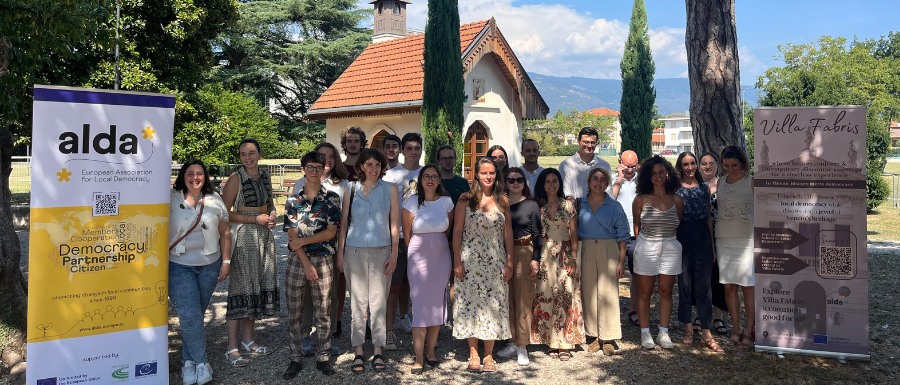Summer School Diary – Day 2
The second day of our Summer School on Local Democracy saw a lighter agenda in terms of expert interventions, but definitely more specific for what concerns citizens participation and decision-making processes.
Today, participants were provided with an academic overview on the meaning and concpt of “citizen participation” by Francesca Gelli, Professor of Political Science at IUAV University of Venice (Italy). Prof. Gelli also explained the functioning of participation within the political frame of a municipality as well as the changing perspectives when considering different political cultures, mainly linked to a specific geographical area.
“Participation is a creative, often unpredictable process. – stated Prof. Gelli –Then, we need to keep in mind that participation is for change, so it has to surprise, criticize the existent, allow new partnerships and connections.”
She also mentioned some examples of innovative participatory methods implemented in the Italian regions of Emilia Romagna, Tuscany and Puglia. One was related to the participatory methods in political parties, the other relates to public debate related to architectural projects.
“Participation is for change, so it has to surprise, criticize the existent, allow new partnerships and connections” Prof. Francesca Gelli
Following such a theoretical beginning, the floor was taken by Patrick Molinoz, President of the citizenship, governance, institutional and external affairs commission (CIVEX) of the European Committee of the Regions, who presented examples of “democratic resilience at European and local level”. He mentioned some case studies involving the Committee of the Regions in facing crises such as the covid-19 breakout and the more recent war in Ukraine.
He then questioned the role and responsibility of politicians regarding promises made to citizens during the election campaign, as this is a focal point when it comes to citizen participation. “City governments and leaders have the greatest responsibility, since city leaders and candidates simply can’t promise the impossible, being them closer to the people. – outlines Mr Molinoz – Otherwise then, the same people vote for candidates from opposite political parties in the same electoral day, at different electoral levels: there’s no more ideological vote. Also, we have lost a common perspective: this perspective is, for me, EU”.
All these inputs of course aroused several reactions in the participants, which then took the floor with several questions and inputs, creating a dynamic plenary debate, moderate by Anna Ditta, Head of Development Department of ALDA.
The afternoon took a different shape with a workshop on “Citizen Participation and Democratic Decision-Making” – using the right instrument at the right place” .
To introduce the workshop and provide even more knowledge and inputs for debate, our colleague Anna Ditta provided an insightful on citizens participation and on the various degree of participation, according to the Council of Europe, being them information, as the basis of participation; consultation; dialogue and partnership”.
On this basis, the activity foresaw that participants, divided into smaller groups and according to various given scenarios, had to try to find the right tool to stimulate citizens participation.
The day thus came to an end, looking forward to the third and conclusive day tomorrow, when Ukraine will be in the spotlight, as a case-study of critical situation, when democracy and participation are in danger since Russia’s full-scale invasion of Ukraine, in 24th of February 2022.
